When Andrew and Scott Aitken, owners of Jet Rigg Service Station and Jet Bypass Service Station in East Lothian decided to invest in new epos systems for both sites, they knew they needed to do their homework. "We did more leg work for this till system than for any previous system," says Andrew. "We really wanted to ensure it was the right fit for our business. We first met our chosen supplier, Henderson Technology, at an industry event. They invited us to Northern Ireland for a study tour to see the technology in action at two fuel sites and one dry site. We then went to visit a forecourt in Aberdeen, which had very similar needs to ours so that we could get honest feedback on how the installation had gone. It was very evident from our research that Henderson Technology’s EdgePoS system would offer everything we needed for the sites and a whole host of value-added fuel features as well." Another bonus that the Aitkens appreciated was the fact that Henderson Technology’s epos systems are directly linked to Filshill Wholesaler, which they say offers a lot of benefits such as smoother ordering and better control over stock holding.
"The system also gives us far superior accountability on occasions when customers have no means to pay because you can recall a sale from a day, a week or a month ago, giving you better control over the fuel," says Scott. "The whole operation is much slicker as it is quicker at processing cards, the scanner is much more efficient and we no longer have merchant copies of credit card receipts so we’re saving on till rolls."
The installation of a new system can cause headaches but in the Aitkens’ case it all went smoothly: "The installations were completed overnight in both stores. The team from Henderson Technology arrived when the sites shut at 9pm and by the time we re-opened in the morning everything was set up and ready to go, with no disruption to our customers or staff," says Andrew.
The owners say their customers are impressed with the new technology. "At Bypass we opted to replace one of the two existing tills with a self-serve checkout. Bypass’ second till used to be redundant when just one staff member was working whereas now customers can pay for fuel and any store items by card at the self-serve till. They like having the choice of a self-serve or a manned till, and having the self-serve till has definitely helped to reduce queues."
Another popular aspect of the system are the media screens that are incorporated within it. "These mean we can interact with customers and we now run more promotions which we highlight via the screens."
Andrew and Scott also say that when investing in a new system you need to consider the ongoing maintenance. "We’ve signed up for a five-year contract with Henderson Technology and pay a monthly charge which means that all maintenance and support is included. At the end of the contract, all of the equipment will be replaced with the latest versions, so we now have a future-proof solution at both sites."
Pos for life
Andy Garner, director at Garner Group, which includes the Forecourt Trader of the Year winner 2019, Woolmer Service Station, is a satisfied customer of TLM: "We have a long-standing relationship with the team at TLM, dating back over 30 years which made it an easy decision to choose their evoPOS for our site. We have a product that has an exceptional user interface and gives us the ability to offer better, faster customer service.
"Having the facility to customise till functions and buttons is extremely useful and the addition of media screens at the till has proved a valuable opportunity to customise promotions to our customers."
TLM uses the tagline ’your pos for life’ to market its evoPOS system, saying that it is "purpose-built for the future of digital retail in fuel and convenience, delivering all the functionality you expect today alongside the flexibility to grow with your business tomorrow".
The system takes a ’little and often’ approach to updates which means it evolves in step with your business. TLM says that as the system is based on an open software platform, rather than on locked-down code like traditional epos, new functionality can be added in a shorter time, while there are fewer obstacles to integration with the other on-site technology retailers need.
As Andy Garner indicated, there’s an option to implement in-store digital media, meaning you can advertise the latest promotions and new product lines to customers in a way that resonates with them instead of relying on fixed printed displays. These can be adjusted in real-time and altered to reflect anything from new offers to time-relevant displays like lunchtime food purchases. And, if you’re running multiple offers, evoPOS helps stop you ’double discounting’. With its ’best deal promotions’ engine, evoPOS will identify incidents where multiple discounts are applied simultaneously and alert the cashier, who will then have the option to select which deals to include, and subsequently which to exclude. As a result, customers still get the value for money, while retailers limit avoidable lost revenue.
TLM says evoPOS can be delivered as a Software-as-a-Service (SaaS) solution, paid for on subscription and therefore avoiding excessive up-front licence purchases.
Multi-faceted
For today’s multi-faceted forecourt operations, retailers need an IT solution that can manage all of their operations from one central hub and enable them to provide their customers with the best possible customer experience. CBE says its FutaTill Solution can do this.
"Coupled with the dynamic FutaTill solution is the powerful CBE WinRetail back office with second-to-none reporting, real-time stock and electronic journalling. Including over 200 reports for complete business management and designed to work in single or multi-site operations, the WinRetail solution offers full cloud functionality, including in-depth analysis of dry and wet stock, making it easy to stay on top of your game," explains Niall Dooney, marketing executive at CBE.
CBE also offers back-office functionality on the go with its wi-fi Android handheld solution, which enables the creation of orders, acceptance of deliveries, price changing as well as full control over stock management.
Dooney says CBE can offer existing integrations to a multitude of external technologies such as mobile payment, loyalty, price pole, biometrics, self-checkout, age verification, electronic shelf labels and many more.
"The CBE solution is designed around enhancing the consumer experience by reducing transaction times, improving the speed of service and eliminating queues, ultimately leading to greater revenue for your business," says Dooney.
Previous Forecourt Trader of the Year winners, Sewell Retail Group and Parkfoot Garage are just two of CBE’s satisfied customers. Patrick Sewell, md of Sewell Retail Group, says: "We spent over two years researching the epos market before selecting CBE FutaTill as our chosen solution. It had everything we needed for our system ambitions not only now but also into the future." And David Charman, owner of Parkfoot Garage, says: "I have worked with a lot of epos systems over the years but the CBE FutaTill solution is the most complete package I have seen."
The introduction of self-checkout solutions is a growing trend across retail and FutaTill’s comprehensive forecourt solution now gives retailers the ability to process fuel transactions using its self-checkout.
CBE, a Premier Partner of NCR, has installed self-checkouts in a number of forecourts in the UK and Ireland. Fuel on self-checkout is implemented using the ’fractional model’, which allows consumers to pay for their shop items and their fuel in one transaction at the self-checkout while being monitored/assisted by an existing cashier. "This eliminates the need to have a dedicated staff member managing the self-checkout area, therefore providing an additional service for customers, faster throughput of transactions and with no extra labour costs," explains Dooney.
He says there are many advantages of using self-checkout: "A big benefit for both customers and retailers is that it reduces the negative experience of standing in queues. From a retailer’s point of view, an advantage is reliability a self-checkout will deliver the same level of service to every customer all day, every day. There is also the huge benefit to retailers of cash office savings, where there is less time used in balancing till drawers after shifts. Self-checkouts also increase the transaction numbers in a store and having more staff on the shop floor results in more security around the store."
Back to functionality, and Orbis Tech says its experience of working in hospitality and supermarket retailing brings benefits to forecourt retailers, who are not only selling traditional fuel and dry goods but are also including coffee, food-to-go and dining.
Darren Brown, business development and marketing at Orbis Tech, says ’recipe management’ is an integral part of the solution. "This allows retailers to effectively manage the margins on sales which have a build of materials such as coffee or food made up on site without the need for third-party systems."
On the technical side, Brown says the Orbis Site Management System benefits from a unique system architecture; the point-of-sale software (POS), back-office software (BOS) and head-office software (HOS) are all in a single database with the BOS and HOS running on thin ’web’ client architecture in the cloud. And like TLM’s solution, Orbis software is provided on a SaaS (Software as a Service) system, which is effectively a rental scheme where retailers can take additional modules to meet changing requirements on a pay-as-you-go basis.
In addition, Orbis Site Management System updates are seamless and do not require client intervention as updates are managed in the cloud.
"Typically, upgrades are every three months for minor releases and one full release a year. We use Amazon Web Services for cloud storage services," he explains.
There is obviously a lot of choice when it comes to epos so as retailers mentioned here have said, doing your homework is vital. Says forecourt retailer Andrew Scott: "Do your research! This is a big investment, so you need to look at what your current system does and what you’re expecting to get out of the new system.
"Doing the legwork is invaluable: make time for it, plan for it, prepare for it and go and see it in action at other sites."
What PayPoint One can do for you
Launched in 2016, PayPoint One is now live in 14,000 stores in the UK. It was built on the Android software system and enables the seamless integration of card payments, parcel services, epos and bill payments all on one device. These functions, in combination with PayPoint’s partnerships with brands such as Monzo, Amazon and DHL, enable forecourt retailers to provide a service that rivals the local convenience store.
There is no upfront cost for having PayPoint One, instead retailers pay a weekly service fee, which removes a key barrier for retailers with limited resources.
In addition, PayPoint One has a smartphone app which enables forecourt operators to manage their stores from any mobile device without the need to be on site. Additional features include closer integration with third-party suppliers, newspaper and magazine management, the printing of shelf- edge labels and customisable hot keys, all of which are designed to allow retailers to operate with greater efficiency. This is also reflected in the customisable sales dashboard, which collates live sales data and provides retailers with advanced insights and reports allowing them to increase profitability by reducing wastage, shrinkage and out-of-stocks.
To help forecourt retailers fully benefit from the system, PayPoint provides video training modules giving them step-by-step tutorials and demonstrations on how best to utilise PayPoint One. Regular communications on software updates and new functions, PayPoint ensures retailers have everything they need.
Why epos training is vital for effiency and profitability
Many fuel retailers need to invest more in epos training, so they can use all the data that these systems offer. That’s the view of Darren Brown, business development and marketing at Orbis Tech. He says that when an epos system is commissioned, the retailer obviously wants a smooth switchover to ensure the operational running of their business and management often leave training at that. However, Brown says this means that they fail to explore all the other rich functionality that a new epos system can offer.
"Often this requires refresher training or even a series of workshops where the epos vendor updates the fuel retailer on new features, integrations and functionality that they could benefit from.
"At Orbis Tech training is one of the most important aspects of delivering the proposed Site Management Solution. Adequate training is necessary to make the most of any investment, improving efficiency and thus profitability, ensuring a swift ROI and, by providing an effective product for staff to use, increasing staff satisfaction and customer satisfaction."
He says training plans are tailored to suit each individual project to ensure that they meet the clients’ requirements and represent value for money. Orbis Tech will start with an initial understanding of how the business uses their current epos system in order to devise a training plan. They can also adopt the ’Train the trainer’ method to enable management to train shop-floor personnel. And Orbis offers a refresher training programme post-install to ensure key staff can consolidate their learning.
Getting an Edge over your competitors
EdgePetrol allows forecourt operators to make more intelligent decisions around pricing and procurement by providing all their key metrics in one place, in real-time.
The company says users can follow margins in real-time, weighted and blended to give a more accurate number for better pricing decisions. The impact of fuel cards can also be applied to this margin, showing retailers the profit they are really making.
Mark Truman, chief revenue officer at EdgePetrol, says the concept was originally built with the Top 50 Independents, but the team has continued to listen when adding new features. "The app is never finished being built; we’ve a public roadmap outlining the developments the product team are contemplating, where users and non-users alike can submit new ideas for consideration."
As well as offering fully supported software, EdgePetrol’s customer success team is responsible for making sure users are getting full value out of their subscriptions. Full product ’on-boarding’ is followed by regular touch points tailored to the needs of each customer. Truman says EdgePetrol experiences first hand how to get the most out of a good epos system. "There are thousands of data points running through each forecourt every day, so having epos that can display this to you in an insightful format can really benefit the decisions you make to drive site profitability. Our main advice would be to make sure that any epos you invest in is willing and able to integrate with other valuable systems that will help you run a better business."
Providing the latest technology
Darren Nickels, head of Henderson Technology, says a unique selling point of the company’s EdgePoS system is that it automatically provides updates of its latest software to stores. "It’s a continuous learning and developing process, based on requests from retail customers," he says. "And that customer base has expanded across the UK and Australia.
"As we learn about what’s happening in retail we push that out so everybody gets the latest updates. We want to provide the latest technology. We do not want upgrades to be a decision that people have to make so we build it into the whole model so that retailers can get straight in there and deploy the latest features."
While self-checkout has become fairly commonplace in the wider grocery market, it’s less visible in c-stores, largely due to cost. Henderson Technology went back to the drawing board to re-engineer self-checkout to enable convenience retailers to compete in this space, and last year it launched a low-cost, self-checkout solution, which bolts on to existing EdgePoS tills and requires no additional counter space. It is now running in 90 stores.
Scan and go is now on the tech team’s radar. While currently not practical for a forecourt, the business is considering how it optimises the efficiencies of the technology and frictionless retail for stores. "Scan and go is the next thing we need to understand," Nickels says. "We are looking at a staged approach, which would enable shoppers to scan items on their phone but then pay via a dedicated self-service lane."





















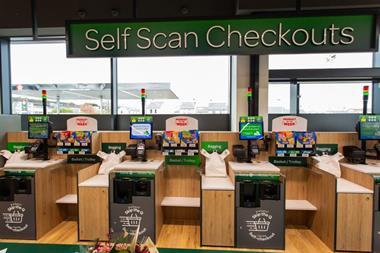
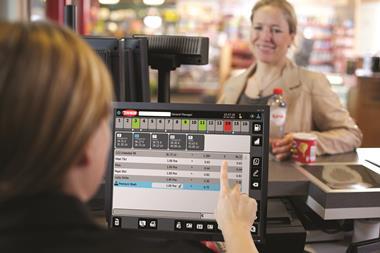
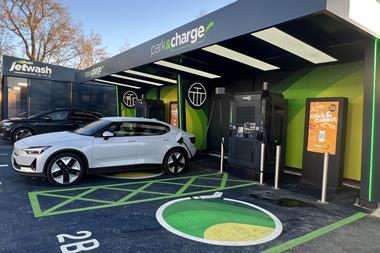

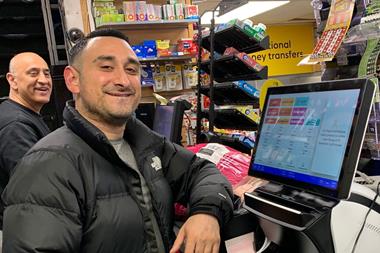
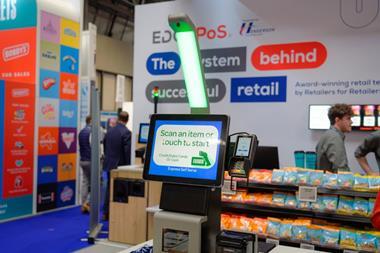
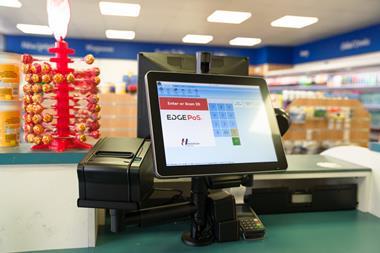
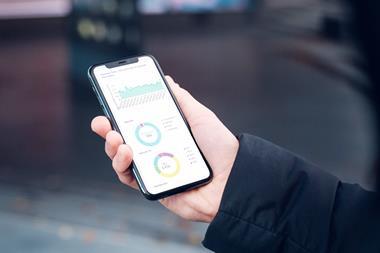
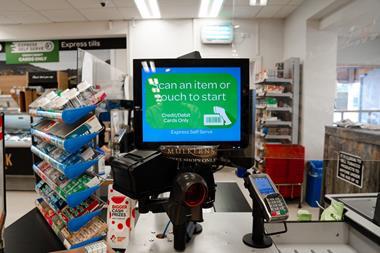
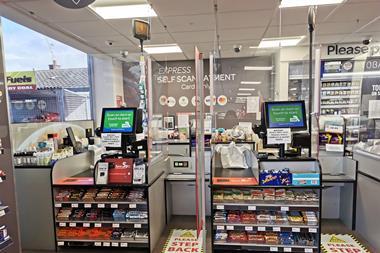
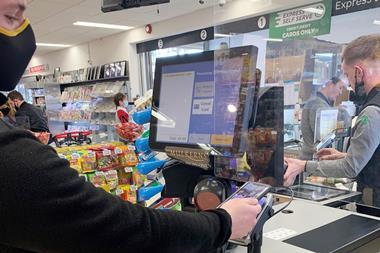
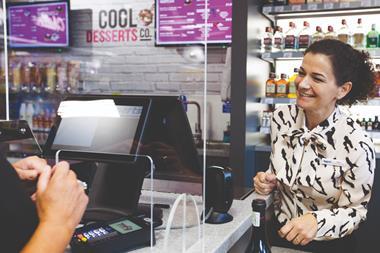
No comments yet